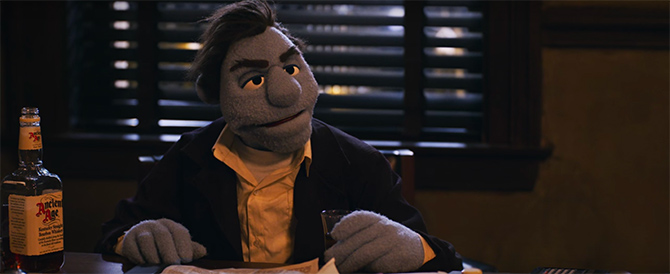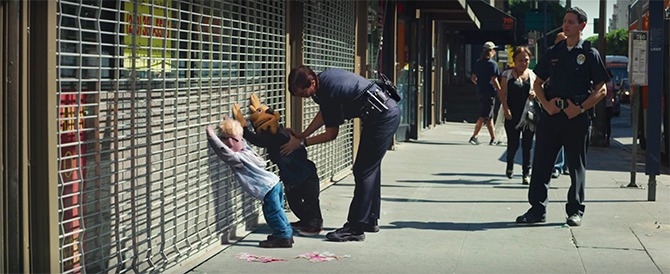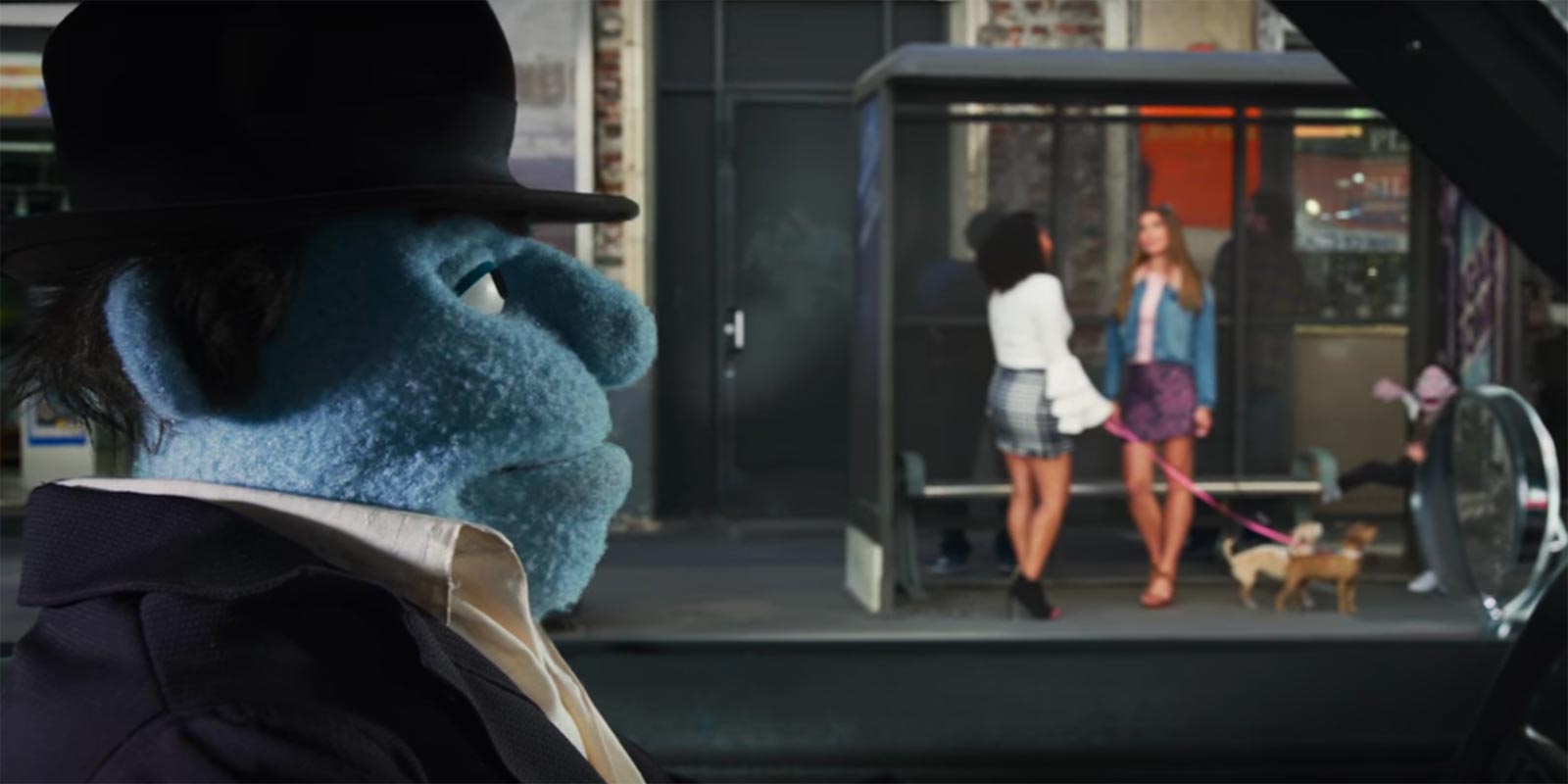Maybe the humor wasn't meant for me.
I find myself deeply conflicted over this film because I can't tell if the jokes were a personal mismatch or if they were just bad.
In The Happytime Murders, puppets and humans live alongside each other in what can be described as an uneasy truce. Ex-cop Phil Philips—a puppet—has been working as a detective ever since he flunked out of the LAPD. His ex-partner, Connie, is a human. The two of them have been extremely antagonistic towards each other since he left.
When Phil is approached by a seductive, red-haired puppet named Sandra, his carefully constructed world begins to fall apart. Soon he finds himself teaming up with Connie to investigate the brutal murders surrounding The Happytime Gang, the first puppet sitcom to hit syndication. Major drama ensues.
The Good

I like puppet-based films, usually. I'm a fan of morbid comedy. Unfortunately, neither of these elements were enough to keep me engaged.
What do you say about a movie that is technically competent that you still disliked? How do you talk about this creatively stagnant film in a review that is structured as "The Good," "The Bad," and "The Verdict"? I really struggled to find a way around this conundrum when I first drafted this article.
I will admit that the puppet designs were cool in a nostalgic way. There's also the fact that I love hard-boiled crime noirs featuring private detectives with chips on their shoulders. I love femme fatales and fast money and crime procedurals, and I love shows that are set on the seedier side of LA, both in the present and in future cityscapes like Blade Runner.
Beyond these surface things, however, what did I like about this film? Seriously, what is there to say? There's nothing, and at the end of the day this film is bad not because it's incompetent but because it's forgettable.
A forgettable story is worse than one that people have adverse reactions to. If someone hates your film, at least you can say that it affected someone, that it evoked an emotion, not to mention it stays in the public conscience longer. What's left when your film is forgotten?
The Bad

For a movie that was ostensibly a comedy, I didn't laugh once. I raised my eyebrows at a couple of the jokes in an "oh yikes, they thought this would land" sort of way, but I never once chuckled.
A lot of the jokes were extremely dated and utilized a form of humor that was common in the early 2000s—the kind where comedians punched down at people with less power than themselves instead of making self-effacing social critiques.
The jokes we did get were about fat people. About inbreeding and women "looking like men," which veers too close to being trans-exclusionary. The villain of this movie actually had an incredibly sad backstory with a totally legitimate grievance, but their grievance was also treated like a joke, especially by our puppet protagonist Phil Philips. This only succeeded in making him unlikeable as a main character.
None of these jokes were self-aware enough to acknowledge that they weren't landing, by the way. They were played straight, fully intended to resonate with the audience—I just don't know who that audience was supposed to be.
Millennials, maybe? We're the ones that grew up with these types of puppets in this sort of setting, but the jokes here pre-date our generation by a good decade or two. The rest of the film outside these jokes isn't worth mentioning. It was plain boring.
The Verdict
The most interesting part of this movie was not the movie itself, but the drama surrounding its release. In 2018, STX Productions was sued by Sesame Street for using their trademark without permission.
Sesame Street claimed that Happytime was diluting their child-friendly brand with their tagline: "No Sesame. All Street." The Happytime Murders refused to fold. Shortly afterwards, the Judge ruled in their favor and threw the lawsuit out.
